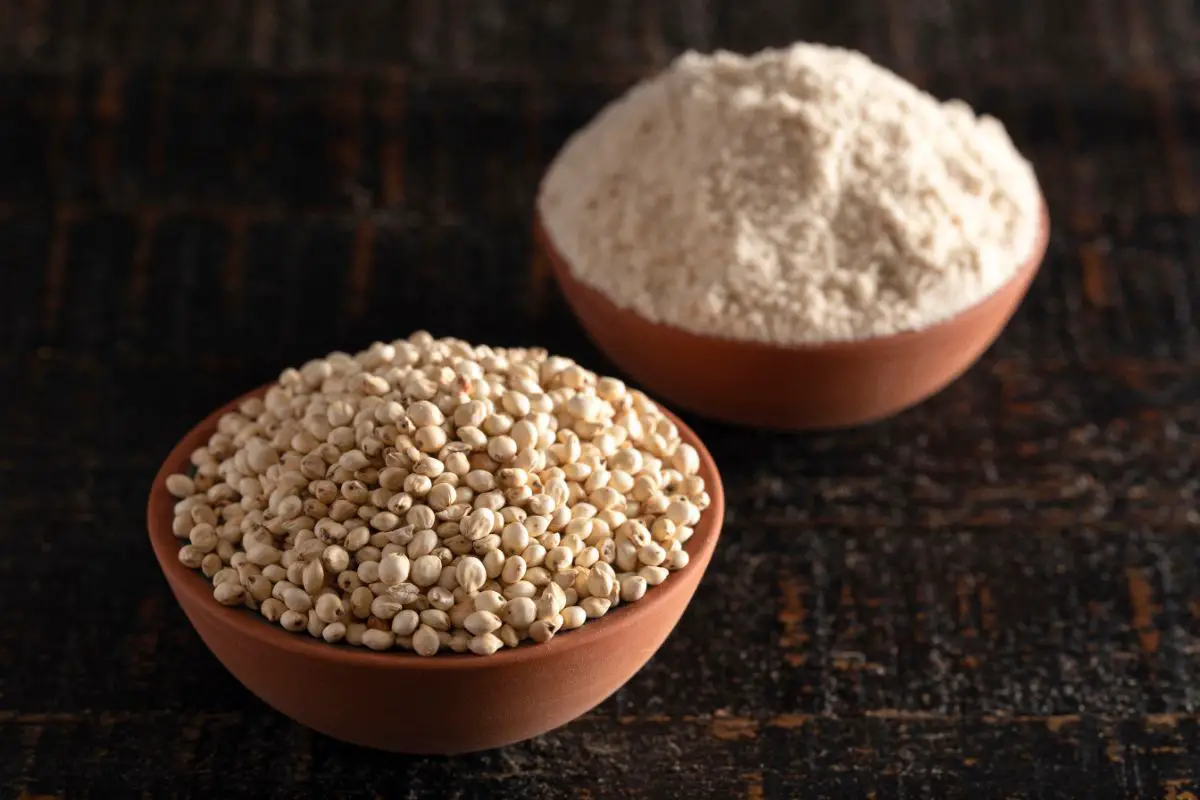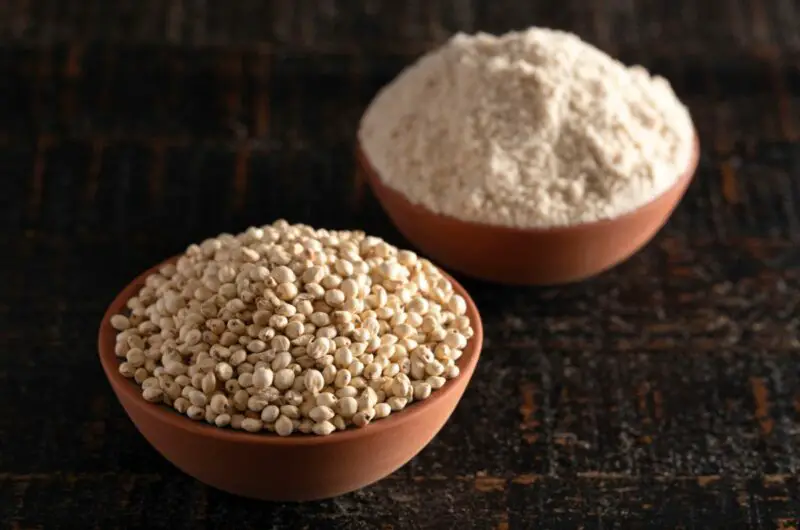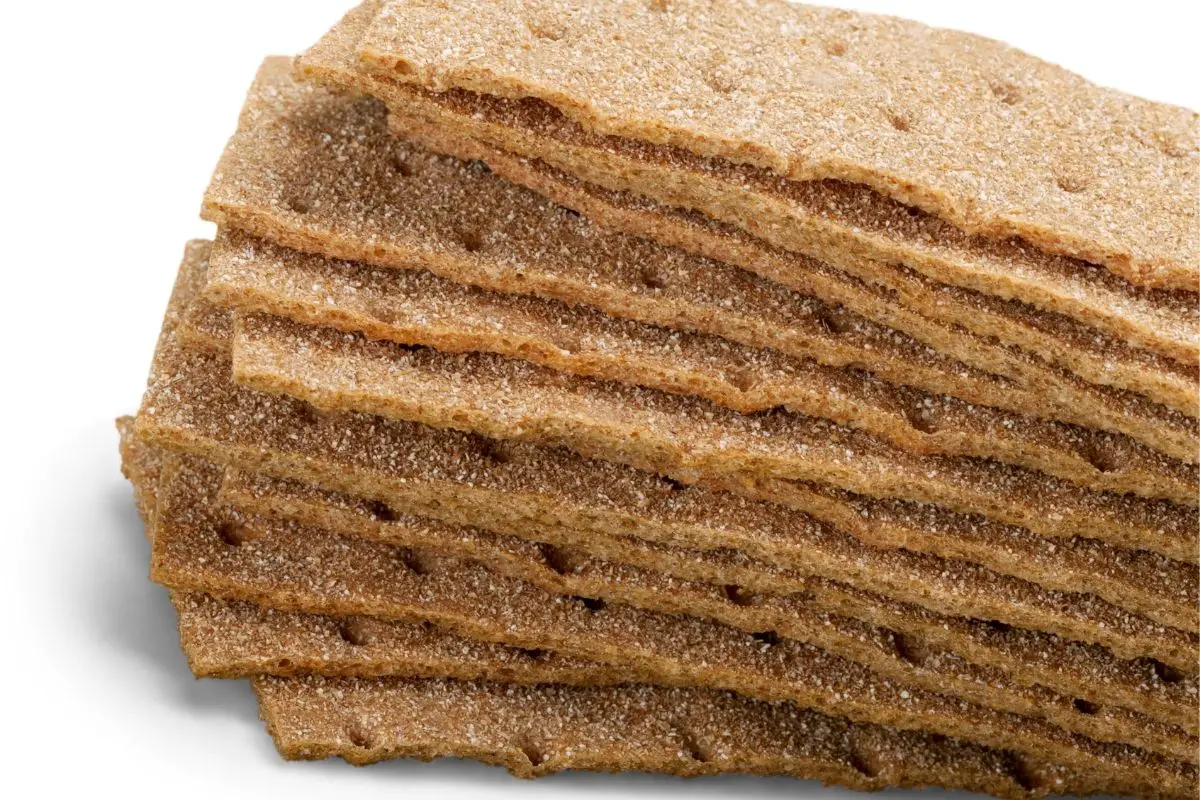Are you looking for a substitute for sorghum flour that still provides the same flavor and texture? If so, you’ve come to the right place. Sorghum flour can be hard to come by, and it’s often pricey. But there are plenty of other flours that can do the job just as well!

In this article, we’ll discuss some of the best substitutes for sorghum flour. We’ll take a look at each one and explain why they make great alternatives.
1. Amaranth Flour
Amaranth flour is one of the best substitutes for sorghum flour, as it can be used to create a wide variety of baked goods.
Amaranth flour is made from grinding the whole amaranth grain into a fine powder. The process is similar to milling other grains in that the outer husks are removed before the grain is ground into a fine powder.
The resulting flour contains all the nutritious components of the grain, including protein, fiber, and minerals. It can be used in a variety of ways such as for breads, muffins, and pancakes.
Here are five reasons why amaranth flour is a great substitute for sorghum:
- It is high in protein and fiber.
- It has a mild, nutty flavor that compliments many dishes.
- It is gluten-free and can be used as a substitute for wheat flour in baking recipes.
- It contains minerals such as iron, zinc, magnesium, and potassium.
- It has anti-inflammatory properties which can help reduce inflammation in the body.
Amaranth flour can be used as an all-purpose flour in baking recipes or combined with other flours to create unique textures and flavors. Its mild flavor makes it suitable for sweet or savory dishes alike, making it incredibly versatile and easy to incorporate into any recipe!
2. Buckwheat Flour
Buckwheat flour is an excellent substitute for sorghum flour. It has a mild and nutty flavor, which pairs well with sweet or savory dishes.
The texture is slightly grainy, making it a great choice for baking. Buckwheat flour also contains more protein than sorghum flour.
This makes it an excellent choice for those looking to increase their daily protein intake in a gluten-free way. Moreover, buckwheat flour is high in fiber and B vitamins, which help support the immune system and keep digestion running smoothly.
Buckwheat flour is made by grinding the hulled buckwheat groats into a fine powder. The groats are cleaned and then toasted to bring out the flavor.
The toasted groats are then ground into a fine flour. The whole process is done in a dedicated facility to ensure that no other grains are mixed with the buckwheat flour.
Buckwheat’s nutritional profile means that it can be used as part of a balanced diet for people with celiac disease or other gluten sensitivities.
As an added bonus, it’s also naturally vegan-friendly and suitable for most diets, including Paleo, Keto, and Atkins.
However, it should be noted that while buckwheat flour is a great replacement for sorghum flour in most recipes, it may not be the best option when creating light and fluffy cakes or pastries as its heavier consistency tends to weigh them down.
3. Oat Flour
No flour has been more celebrated than oat flour in recent years. It’s a beloved ingredient that has inspired home bakers and professional chefs alike. There’s something magical about its wonderful texture, light flavor, and versatility that makes it an ideal substitute for sorghum flour.
Oat flour is made by grinding oats into a fine powder. This can be done in a food processor or blender. The oats can be either whole oats, steel-cut oats, or instant oats.
The oats are then processed until they form a fine, even powder. The oat flour can then be used in baking or as a substitute for all-purpose flour in recipes.
Oat flour is also a great alternative to traditional wheat flour and is good for those with gluten-intolerances. It is a great source of fiber, protein, and healthy fats, which can help to stabilize blood sugar levels.
Oat flour can be used in most baking recipes and can be used as a thickening agent in soups and stews. Oat flour can also be used to incorporate a bit of extra nutrition into pancakes, muffins, and other baked goods.
It’s a great choice for anyone looking to increase their dietary fiber intake or just add a bit of extra nutrition to their favorite recipes.
4. Almond Flour
Almond flour is one of the most popular substitutes for sorghum flour. It has a mild, nutty flavor that compliments baked goods and other recipes.
Almonds are rich in monounsaturated fats and contain protein, fiber, vitamin E, magnesium, and phosphorus. It’s also low in carbohydrates and gluten-free, making it an ideal choice for people with sensitivities to wheat or gluten.
To use almond flour in baking recipes, you’ll need to combine it with other flours to achieve the desired consistency, as it absorbs more liquid than wheat flour.
When using almond flour as a substitute for sorghum flour, add a teaspoon of baking powder to each cup of almond flour used.
This will help provide a lighter texture while still providing a good structure for your baked goods. With its health benefits and versatility, almond flour is an excellent alternative to sorghum flour.
5. Rice Flour
Rice flour is a great substitute for sorghum flour and can be used as a gluten-free baking option, or simply as an alternative to wheat flour.
Rice flour is made by grinding dried, uncooked rice into a fine powder. The rice is usually ground in a large mill, and then sifted to remove large pieces.
The rice flour is also often bleached to remove the bran and germ, leaving a finer, lighter powder. The resulting flour is then packaged and sold in stores.
Benefits of rice flour include:
- It has a light texture that works well in cakes and pastries.
- It adds moisture to baked goods, making them more tender and fluffy.
- It’s also rich in iron, calcium, and other nutrients.
Rice flour is typically used as a thickener in sauces, gravies, and soups. It can also be used to make noodles and dumplings. Additionally, it can be mixed with other flours for baking breads, cookies, and muffins.
6. Coconut Flour
Coconut flour is an excellent gluten-free, grain-free alternative to sorghum flour that provides a unique flavor and texture to any number of recipes. It’s high in fiber and low in carbs, making it an ideal substitute for sorghum flour.
Coconut flour is made from dried, finely ground coconut meat, and is a good source of fiber, protein, and healthy fats. To use coconut flour, you’ll need to adjust the ratios of other ingredients in your recipes, as it absorbs a lot of liquid.
Start by replacing 1/4 to 1/3 of the wheat/sorghum flour with coconut flour, and then increase the amount of liquid in the recipe by the same proportion. Coconut flour also helps to create a light, moist texture in baked goods.
Coconut flour is a great option for those looking to reduce their wheat intake and increase fiber, as well as individuals with gluten sensitivities. Additionally, it is low in carbohydrates and is an excellent source of healthy fats.
Conclusion
In conclusion, it’s important to consider substitutes for sorghum flour if you’re looking for a gluten-free option.
There are a variety of different flours that can be used in place of sorghum flour, such as amaranth, buckwheat, oat, almond, rice and coconut flour.
Each of these flours have their own unique flavor profile and are versatile enough that they can bring something special to any recipe.
The 6 Best Substitutes For Sorghum Flour
Course: Substitutes4
servings30
minutes40
minutes300
kcalIngredients
Amaranth Flour
Buckwheat Flour
Oat Flour
Almond Flour
Rice Flour
Coconut Flour
Directions
- Decide on what substitute you need
- Pick a substitute from the list above
- Read what you need to substitute with
- Create the recipe and enjoy
Recipe Video
https://www.youtube.com/watch?v=cTFbexNtqjQVideo can’t be loaded because JavaScript is disabled: Sorghum 101, Try This Instead of Rice! (https://www.youtube.com/watch?v=cTFbexNtqjQ)- What Exactly Do Chickpeas Taste Like? Is There A Distinct Flavor? - September 30, 2023
- Top 11 Low Carb Options at Sonic Drive-In for Keto Diet - September 30, 2023
- What Should You Serve Alongside Potato Salad? 8 Incredible Side Dishes - September 30, 2023











